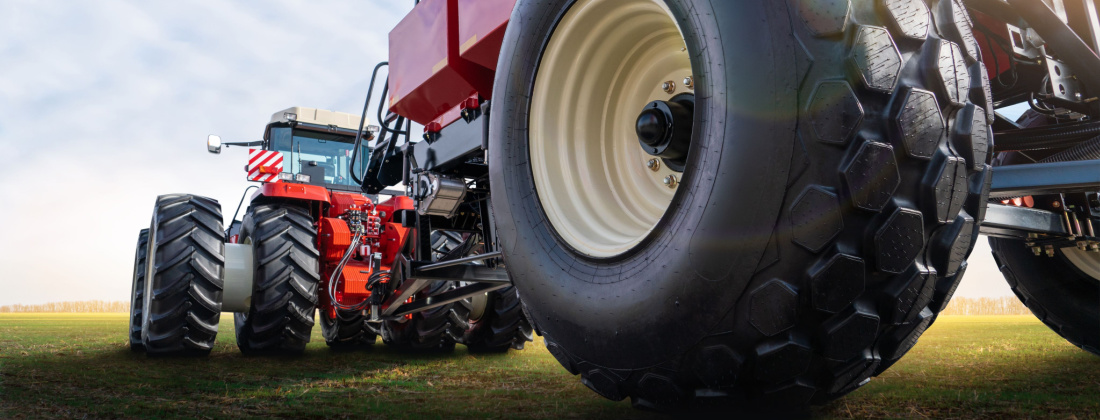
Agricultural (AG) tires are a particular type of tire designed to outfit tractors, combines, and other farming-related machines. Manufacturers incorporated certain unique elements into agricultural tractor tires and similar tire designs to help provide extra capabilities for the large motor equipment used by farmers to produce crops.
Farm or agricultural tractor tires are designed to reduce soil compaction. They are usually manufactured with a high-flotation tread design, which enhances the soft and loose field traction without damaging the soil’s crop-growing capability.
Agricultural Tires can be classified into the following types:
Individual strands that make up each layer of the Bias Tires brand of tires run at angles across the body from one bead to the next. Most run at a 45-degree angle to the tire’s face and at opposing angles with each tire ply. Tire plies are made up of cords, which are layered nylon, rayon, polyester, and other materials, which can be found in Bias Tractor Tires. Because Bias tires are constructed with many layers of these tough materials braided horizontally from tire bead to tire bead, the tire sidewall is durable and strong.
Radial tires also contain rigid belts in the tread region that limit expansion while stabilizing the tires as they grab the ground. Unlike Bias tires, Radial tires have more flexible sidewalls, and this flexibility, along with rigid belts, provides higher grip and efficiency. The plies of Radial tires run radially from one bead to another. Radials can improve traction and decrease soil compaction.
Tubeless tires have been used for many years on combines and industrial tractors and have recently been adopted at all wheel positions by leading tractor manufacturers. They operate at the same inflation and have the same load capacity as equivalent tube-type tires. Not only do tubeless tires provide higher reliability, they are also easier to repair.
Tractor tires, particularly those for agricultural usage, are built a certain way. They must function on loose and mushy field surfaces without causing harm to the soil or crops.
As a result, tractor tires must enhance productivity and fuel efficiency while delivering higher traction on wet and hard ground terrains. Whether we are talking about the rear or front tires, you must choose the proper tire. Using tires that lack the proper tread depth and design might be hazardous. Such tires would compact the soil, destroy crops and lack the grip required to counteract the vehicle’s lateral side slide.
Driving on loose and rough roads puts tractor tires to the test. If traction of your farm tire is not sufficient, the tire will be unable to deliver a safe driving experience on wet soils.
Installing brand-new tractor tires can provide excellent advantages:
If you are looking to update your tractor tires with the latest AG Tires in Camrose, get in touch with the professionals at Tirecraft Rimbey today! Here you will find high- quality and branded tires for your Tractors and Trailers. Our prime aim is to deliver a memorable experience.